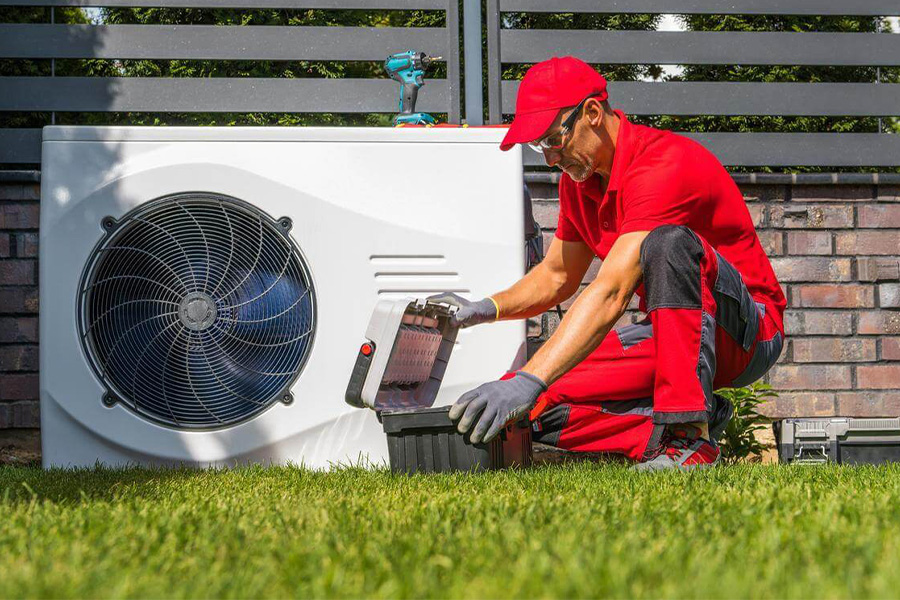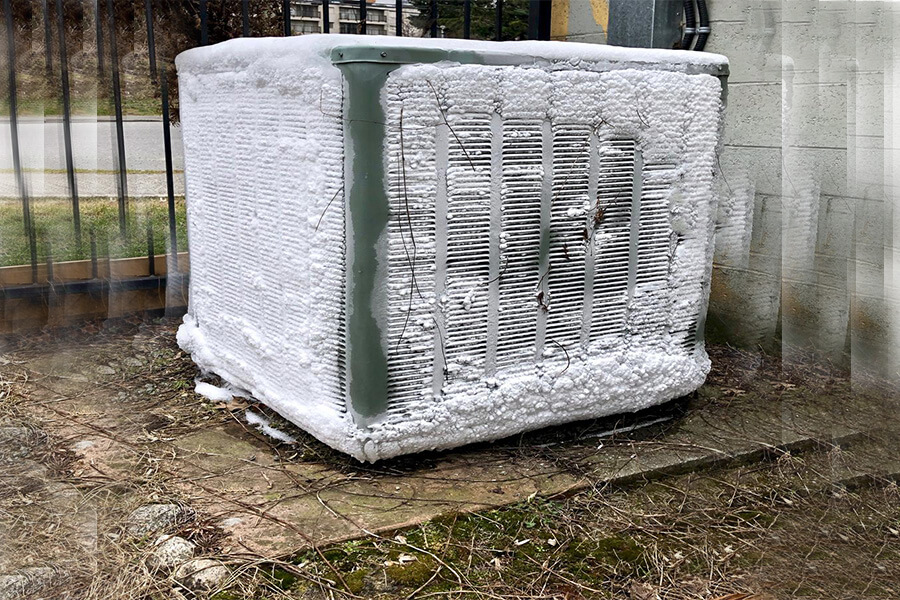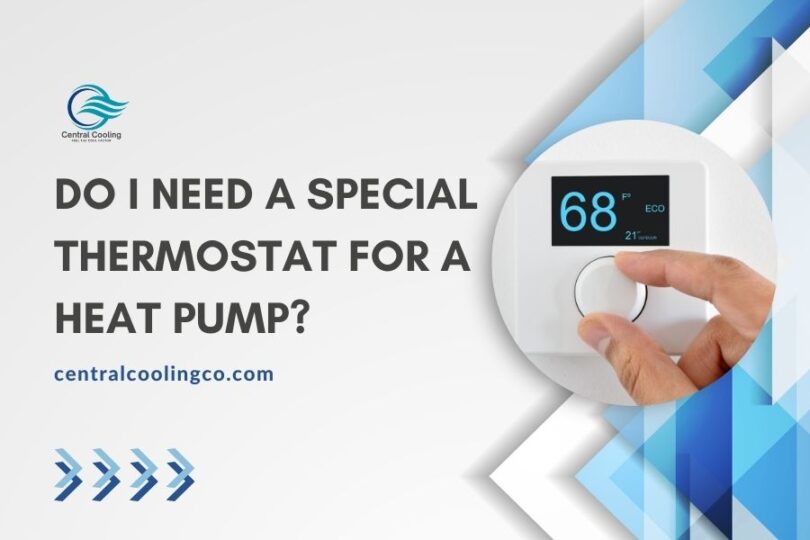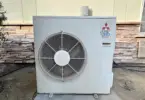Heat pumps are popular in heating and cooling systems due to their energy efficiency and dual functionality. These systems move heat from within to outside, acting as heaters in the winter and air conditioners in the summer. A key component of any heating and cooling system is the thermostat, which controls the system’s operation based on temperature settings. But do you need a special thermostat for a heat pump? In this detailed guide, we will look at the complexities of heat pumps, the role of thermostats, and whether these systems require a particular thermostat.
Understanding Heat Pumps
 Before diving into thermostats, it’s critical to understand how a heat pump works. A heat pump is a device that uses refrigeration technology to transport heat from one location to another. During the colder months, it extracts heat from the outdoor air (even in low temperatures) and transfers it indoors to warm your living space. In the warmer months, the process is reversed, and it removes heat from indoors to cool your home. This dual functionality makes heat pumps energy-efficient alternatives to traditional heating and cooling systems.
Before diving into thermostats, it’s critical to understand how a heat pump works. A heat pump is a device that uses refrigeration technology to transport heat from one location to another. During the colder months, it extracts heat from the outdoor air (even in low temperatures) and transfers it indoors to warm your living space. In the warmer months, the process is reversed, and it removes heat from indoors to cool your home. This dual functionality makes heat pumps energy-efficient alternatives to traditional heating and cooling systems.
The Role of Thermostats
 A thermostat acts as the control centre for your heating and cooling system. It monitors the indoor temperature and communicates with the plan to maintain the desired temperature set by the user. When the temperature deviates from the set point, the thermostat signals the heat pump to start or stop operation. In this way, it ensures that your home remains comfortable without unnecessary energy consumption.
A thermostat acts as the control centre for your heating and cooling system. It monitors the indoor temperature and communicates with the plan to maintain the desired temperature set by the user. When the temperature deviates from the set point, the thermostat signals the heat pump to start or stop operation. In this way, it ensures that your home remains comfortable without unnecessary energy consumption.
Different Types Of Thermostats
There are various thermostats on the market, each with unique characteristics and compatibility with different heating and cooling systems. The three basic types of thermostats are as follows:
- Manual Thermostats: These are the most basic thermostats. Users need to adjust the temperature setting manually. While they can be used with heat pumps, they lack more advanced models’ energy-saving features and programming capabilities.
- Programmable Thermostats: Programmable thermostats allow users to set different temperature levels for other times of the day. For instance, you can program the thermostat to lower the temperature when you’re not at home and raise it before you return. This feature helps conserve energy and can be used with heat pumps.
- Smart Thermostats: Smart thermostats take programmability to the next level. They can be controlled remotely through smartphones and often feature learning algorithms that adapt to your schedule and preferences. These thermostats offer energy-saving benefits and can work well with heat pumps.
Special Considerations For Heat Pumps
Heat pumps operate slightly differently from traditional heating and cooling systems. When in heating mode, they produce less warm air than a furnace. This means the heat pump may need to run longer to reach the desired temperature. Additionally, heat pumps are more effective when operating steadily rather than frequently turning on and off.
Some manufacturers recommend using thermostats specifically designed for heat pumps to address these requirements. These thermostats account for the longer heating cycles and can minimize the frequent on-off cycling, improving comfort and energy efficiency.
The Importance Of Defrosting
 The defrosting mechanism is another important consideration when selecting a thermostat for your heat pump. During cold weather, frost can accumulate on the outdoor unit’s coils, affecting efficiency. Heat pumps have defrost cycles that temporarily switch the system to cooling mode to melt the ice. Specialized thermostats for heat pumps can take this defrosting process into account, ensuring it happens at optimal intervals and doesn’t compromise the system’s performance.
The defrosting mechanism is another important consideration when selecting a thermostat for your heat pump. During cold weather, frost can accumulate on the outdoor unit’s coils, affecting efficiency. Heat pumps have defrost cycles that temporarily switch the system to cooling mode to melt the ice. Specialized thermostats for heat pumps can take this defrosting process into account, ensuring it happens at optimal intervals and doesn’t compromise the system’s performance.
Emergency Heating And Auxiliary Heat
Some heat pumps have auxiliary or emergency heating systems, such as electric resistance heaters, for extremely cold weather. These systems provide additional heating when the heat pump alone might struggle to meet the desired indoor temperature. A thermostat designed for heat pumps can effectively manage both the heat pump and the auxiliary heat, ensuring a seamless transition between the two when needed.
Energy Efficiency Considerations
One of the primary reasons for opting for a heat pump is its energy efficiency. Specialized heat pump thermostats contribute to this efficiency by preventing temperature swings and minimizing energy waste through constant on-off cycling. Smart thermostats may also automatically learn and modify your routine, optimizing energy consumption.
Compatibility And Features
When selecting a thermostat for your heat pump, it’s crucial to consider compatibility. While many current thermostats are designed to work with various heating and cooling systems, it is still a good idea to consult the manufacturer’s recommendations. Some heat pump manufacturers even partner with thermostat manufacturers, ensuring seamless integration.
Beyond compatibility, the thermostat’s features should align with your preferences and needs. A smart thermostat might be ideal if remote control and scheduling are important. However, a basic programmable thermostat might suffice if you prefer manual control.
Frequently Asked Questions
Can I Use A Regular Thermostat With My Heat Pump?
While it’s possible to use a regular thermostat, it’s not ideal. Specialized heat pump thermostats offer better control over temperature swings, defrost cycles and compatibility with features unique to heat pumps, leading to improved efficiency.
How Does A Specialized Thermostat Enhance Heat Pump Efficiency?
A specialized thermostat reduces the frequency of starts and stops, allowing the heat pump to run more consistently and efficiently. It also optimizes defrost cycles and manages supplemental heating, contributing to better energy performance.
Can A Standard Thermostat Handle A Heat Pump’s Defrost Cycle?
Standard thermostats might not effectively manage a heat pump’s defrost cycle, leading to energy wastage. Specialized heat pump thermostats are designed to anticipate and control defrost cycles, improving overall efficiency.
Can Using A Specialized Thermostat Save On Energy Bills?
Absolutely. Specialized heat pump thermostats are built for efficiency, which means they use less energy and cost less to operate than a standard thermostat.
Conclusion
In conclusion, while having a special thermostat for a heat pump is not an absolute requirement, using one designed for heat pumps can offer several advantages. These thermostats consider the unique characteristics of heat pumps, such as longer heating cycles and defrosting needs, optimizing comfort and energy efficiency. Whether you opt for a programmable thermostat, a smart thermostat, or a basic manual thermostat, ensuring compatibility with your heat pump system is paramount.
When making your decision, consider your lifestyle, preferences, and budget. Investing in a thermostat that complements the functionality of your heat pump can enhance your home’s comfort while contributing to energy savings in the long run. Always refer to the manufacturer’s recommendations and seek professional advice if you need help deciding which thermostat to choose for your heat pump system.
Disclosure: We may get commissions for purchases made through links in this post.








